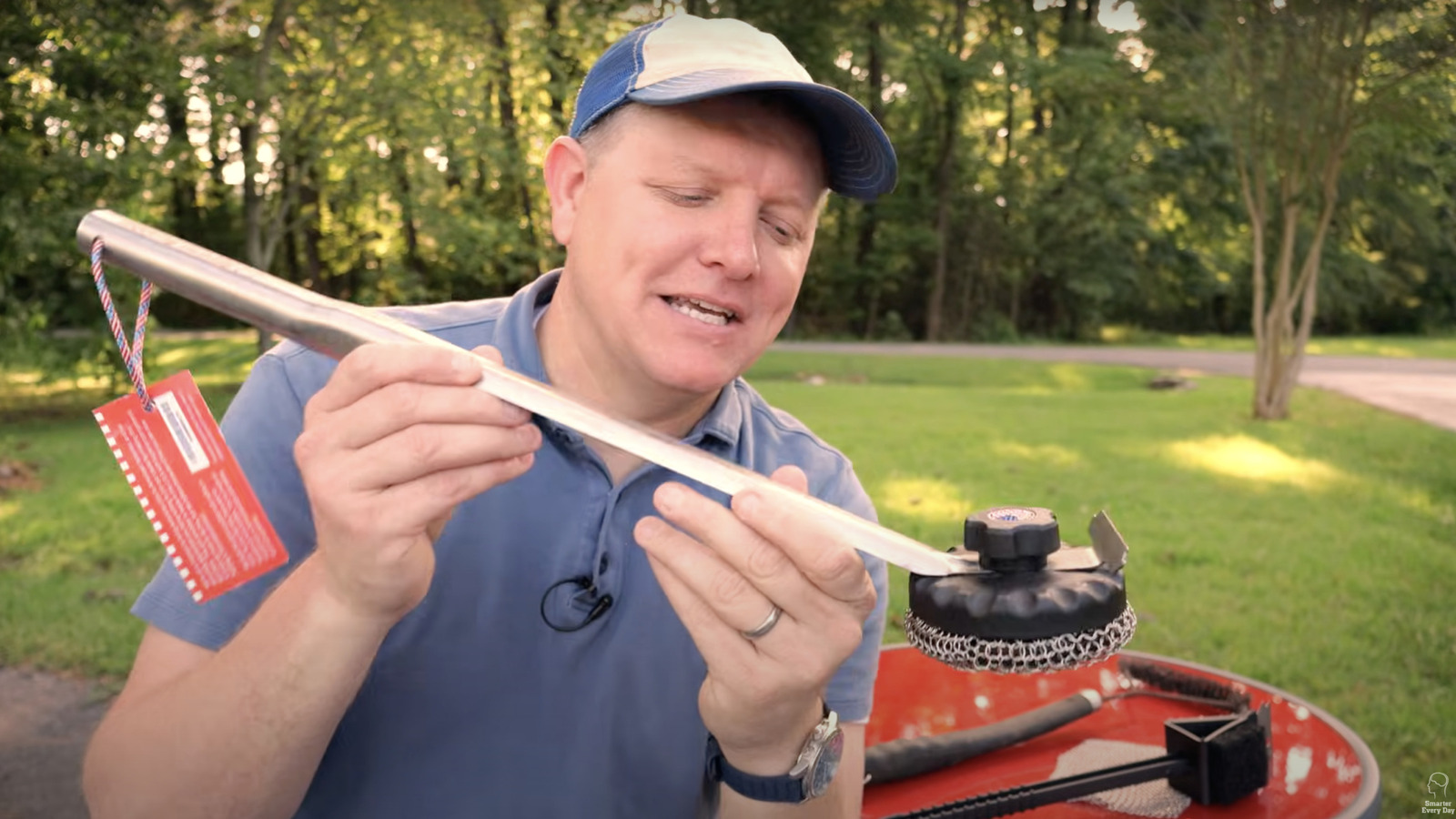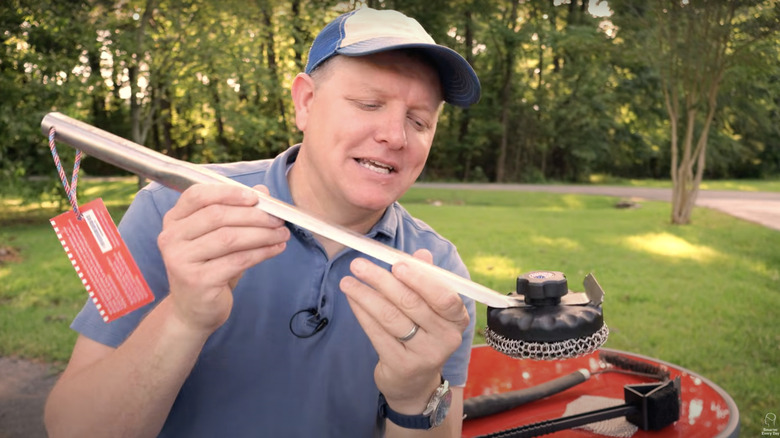Automotive manufacturing is a massive, complex industry that depends on an interconnected network of suppliers spread all across the globe, but according to a lot of Republicans, automakers should be able to quickly spin up multi-billion-dollar factories and make everything in the U.S. It’s no big deal, right? Just build your cars here, and you won’t have to pay the tariffs. How hard can that be? Perhaps harder than you might think.
Cost estimates for consumers for an all-American made car sit at around $400,000, if it was even possible to build, which it is not. Sadly, we don’t have an example of someone who tried to start their own automaker using parts and components that were entirely made in the U.S., but this week, the YouTube channel SmarterEveryDay released a video about their attempt to make something much more basic in the U.S. — a grill scrubber. They don’t exactly have legacy automaker money, but with nearly 12 million subscribers, you have to assume they’re doing pretty well for themselves. And yet, over the course of four years, they still struggled to accomplish their goal.
Is the video explicitly about cars? Not at all. Unless you count the guy behind the channel being the son of unionized auto workers in Alabama. Still, it’s a fascinating video on its own, and I’m assuming people who like cars also like seeing people make other things, too. At the same time, it’s also a fascinating look at just how hard it can be to try to make something entirely in the U.S., even if it only involves a few parts. It also helps highlight just how difficult it would be for an automaker to build every single component that goes into every single car it makes, entirely in the U.S. Especially since the scale most automakers work on is far larger than a simple grill brush.
Supplier limitations in the U.S.
The idea for the grill brush was pretty simple. Instead of using metal bristles that wear down quickly and sometimes end up in your food, something doctors might consider a disaster waiting to happen, they would use a much sturdier piece of chainmail. And by making it in the U.S., they wouldn’t have to worry as much about lower-quality knock-offs popping up and undercutting their prices. Having already dipped a toe into injection molding while making face masks for hospitals during the pandemic, they knew a bit about the process, but even after they’d figured out the design, they ran into problems.
The chainmail, for example, needed to be sturdier than what’s most commonly available on the market, and most of it’s made in China. Eventually, they found someone in the U.S. who could make it for them, but that supplier couldn’t actually make more than a few thousand units a month without a bigger investment in expanding their production capacity. As a result, SmarterEveryDay found themselves forced to look to international suppliers for any additional pieces they might need because they couldn’t find another supplier in the U.S. that could do it.
Instead of giving up and ordering some from China, they found a supplier in India that could do what they needed, and while India isn’t the U.S., it also isn’t China, so they thought that would be the better option. Except when it showed up, the chainmail they’d ordered wasn’t actually made in India. Instead, it was made in China. Oops. They also ordered an off-the-shelf knob that was supposedly made in the U.S., but that part actually came from Costa Rica. Oops again.
That doesn’t necessarily mean automakers can’t possibly build more cars in the U.S., but at the same time, it isn’t nearly as simple as just building a factory to assemble the cars and then a few more factories to assemble the parts and components. If it’s this hard to make a grill brush entirely in the U.S., just imagine how much harder it would be to ensure every single chip, wire, screw and bolt is also made in the U.S.



